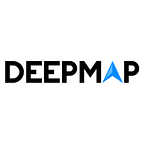Grayson Brulte and Mark Wheeler: A Deep Dive into RoadMemory and More
Today we’re sharing with you a video of a free-flowing, unstructured conversation between analyst Grayson Brulte of Brulte & Company and Mark Wheeler, CTO and Co-Founder of DeepMap.
The discussion took place last week in conjunction with the DeepMap RoadMemory (tm) announcement.
Grayson zoomed in from sunny Palm Beach, Florida, while Mark zoomed in from beautiful Northern California. We’ve divided the ~17 minute interview into 7 parts, each posted on Youtube, with links provided below. For easy reading, we’ve included one quote from each part.
- Part 1 (2:28 mins)
Grayson: What is RoadMemory and why is it so important to DeepMap?
Mark: RoadMemory is complementary to our current product, HDR. RoadMemory is supporting a couple of trends in the industry. The first trend is that OEMs across the board are looking to extend their ADAS capabilities in the L2+ level, the hands-off level. They’re looking to improve capabilities, performance, and safety. The other trend is that a lot of these L2+ capable vehicles are now in the world — and more are coming — capable of recording and transmitting what they’re seeing back to the cloud. RoadMemory is designed to take advantage of that. - Part 2 (2:38 mins)
Grayson: With the growth of L2+, do you see a market opportunity where RoadMemory could enhance the consumer experience and enhance the value of your partner’s brands?
Mark: Exactly. As these vehicles roll out, they have this capability to perceive the world and collect data and send it back to the cloud. What’s missing is a way to take advantage of that. RoadMemory allows OEMs to build their own map, an HD map that can be used on their L2+ vehicles. - Part 3 (1:55 mins)
Grayson: Are you going to use crowdsourcing techniques? Can you shed some light on that please?
Mark: RoadMemory is from the ground up a crowdsourced map. We’ll be ingesting data from OEMs’ L2+ fleets. They have vehicles equipped with cameras, IMUs, GNSS, odometry, and sometimes radar. We can ingest that data and make sense of it. - Part 4 (2:33 mins)
Grayson: The term crowdsourcing is often thrown around. How would you define crowdsourcing as it relates to a map? Mark: DeepMap has been built on the concept of crowdsourcing from the beginning. Crowdsourcing means that all the vehicles that are equipped with autonomous capability, whether it’s L2+, L3, or L4, can contribute back information that it’s seeing in real time to help keep the map up to date or even create the map in the first place. The key is that once you have sufficient coverage of vehicles in an area, the map becomes more and more up-to-date and fresh and accurate and safe. This is key for scaling out autonomous vehicles. - Part 5 (2:29 mins)
Grayson: You have an OEM over here that offers LiDAR, you have another OEM over here that offers a camera…. there’s no standard solution for L2 systems across the global marketplace. Can RoadMemory work with any type of sensor no matter if it’s from an OEM on this side or an OEM on that side? Is it agnostic?
Mark: Yes, that’s part of DeepMap’s DNA. - Part 6 (3:53 mins)
Grayson: On May 28th in Crunchbase, you wrote an article with your co-founder James Wu that was really interesting about mapping and machines. There was something that stood out to me. You said that the era we are entering now promises to be the most exciting and transformative. Why? I want to pull back for a minute because you’re seeing something. What were you seeing when you made that statement?
Mark: We’re seeing a lot of trends in technology of all kinds converging to the vision that we had when we started the company. We believed LiDAR was going to play an important role. That’s happening left and right — all these LiDAR companies are getting lots of traction. As the capabilities of the LiDARs have improved, the prices have come down. Plus, all the things happening on the compute side and deep learning…. On the mapping side, we’ve made a ton of progress towards our vision of building a map engine that can support data from all kinds of different cars. - Part 7 (2:42 mins)
Grayson: What would you like the viewers to take away about DeepMap as an innovative company and your new product, RoadMemory?
Mark: We can support a company’s vision, growing from L2+ all the way to L4 in a very smooth and economical way, and we’re eager to work with OEMs on this.
Grayson: The future is bright, the future is autonomous, and the future is DeepMap. Mark, it’s so great to chat with you once again and thanks for the time sharing this insight with us.
* * *
About DeepMap: DeepMap is accelerating safe autonomy by providing the world’s best autonomous mapping and localization solutions. DeepMap delivers the technology necessary for self-driving vehicles to navigate in a complex and unpredictable environment. The company addresses three important elements: precise high-definition (HD) mapping, ultra-accurate real-time localization, and the server-side infrastructure to support massive global scaling. DeepMap was founded in 2016 and is headquartered in Palo Alto, Calif., with offices in Beijing and Guangzhou, China. Investors include Andreessen Horowitz, Accel, GSR Ventures, Generation, Goldman Sachs, NVIDIA, and Robert Bosch Venture Capital. For more information, see www.deepmap.ai.
